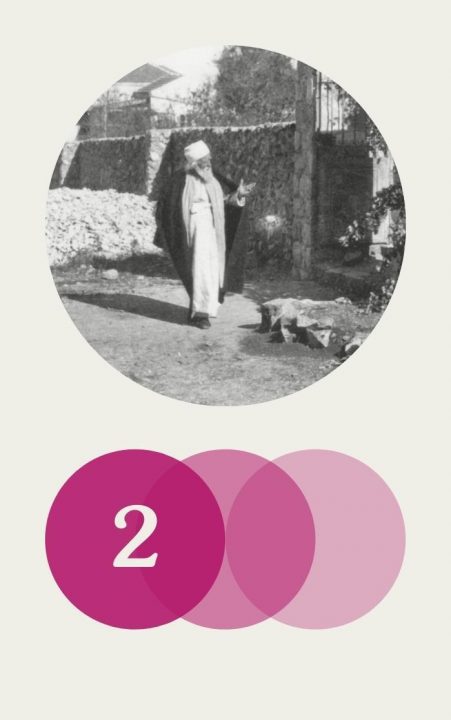The Bahá’í Faith, rooted in principles of unity, peace, and progressive revelation, serves as a lens through which we can examine the life and ministry of Bahá’u’lláh, particularly through the lens of the second episode of the series titled “Ambassador to Humanity.” This episode, centered on the Master of ‘Akká, captures a significant chapter in Bahá’í history—one marked by trials, resilience, and transcendental wisdom.
The metaphor of an “ambassador” conjures images of bridge-building and diplomatic engagement, realms where understanding and humanity’s shared aspirations interlace. In the Bahá’í context, this term resonates profoundly. The Master of ‘Akká embodies the quintessence of this metaphor, serving as an emissary of divine guidance amidst the tumult of historical strife and personal suffering.
‘Akká, the city which became the spiritual epicenter for Zahra and her followers, transforming it into a bastion of hope, invites profound contemplation. It stands as a stark contrast to the shadows of oppression that gleaned over Bahá’u’lláh’s later life. His exile to this fortified city not only represented a physical displacement but also positioned him precariously at the intersection of faith and adversity. In exploring the depths of this episode, one recognizes that exile often seeds resilience, a principle strongly underscored in Bahá’í teachings.
One of the episode’s poignant themes lies in understanding how ‘Akká became an emblem of both constraint and liberation. The city, riddled with physical and metaphysical barriers, morphs into a sanctuary for Bahá’u’lláh’s teachings to flourish. The paradox manifests beautifully—confinement paradoxically breeds a new context for the development and dissemination of spiritual knowledge. As Bahá’u’lláh remained confined, the essence of his teachings transcended geographical restrictions, permeating hearts and minds across vast distances.
Throughout this installment, the imagery of light and darkness prevails. The narratives elucidate the dichotomy between the oppressive circumstances enveloping the Master and the luminous insight he imparted. This vividly illustrates how, even amidst the bleakest of surroundings, the soul can shine with the brilliance of divine illumination, echoing the intrinsic Bahá’í belief in the potential within each individual for spiritual enlightenment and personal transformation.
Moreover, the societal implications of Bahá’u’lláh’s revelations during this period cannot be overstated. The Master’s teachings beckoned society to reconcile with its fragmented state. Through his letters—Epistles of profound depth and spiritual resonance—he admonished humanity to eschew prejudice, embrace diversity, and recognize the interconnectedness of all peoples. His call for justice resonated as a clarion call, urging individuals to catalyze change within themselves and their communities.
The concept of unity in diversity takes center stage, splendidly woven into the narrative. ‘Akká serves as a microcosm where individuals from disparate walks of life converge, illustrating the Bahá’í ideal that social cohesion is attainable through mutual respect and understanding. This episode artfully highlights the notion that diversity is not merely a collection of differences but is essential in enriching the fabric of society.
Furthermore, the exploration of ‘Akká is incomplete without acknowledging the profound relationships forged in adversity. The bonds developed among the early Bahá’ís offer poignant lessons in solidarity and collective resilience. In navigating their trials, they exemplified the strength of community, revealing that in times of turmoil, unity can act as a formidable force against despair and division.
The critical examination of the Master’s significant correspondences during his time in ‘Akká underscores a critical juncture for humanity. These sacred writings unveil the depths of his prophetic vision—a vision underscoring the necessity for a global ethos rooted in justice, equity, and compassion. The eloquence found therein not only captures truths endemic to the Bahá’í Faith but also articulates an inspiring narrative for humanity at large. In a world grappling with conflict and division, these teachings resonate with resounding relevance.
As the episode unfolds, one confronts the immense sacrifice borne by the Master. The hardships he suffered do not merely serve as biographical footnotes but embody a transcendent narrative of endurance and faithfulness to a higher calling. This selflessness acts as a testament that juxtaposes personal suffering against divine service, teaching that true nobility lies in serving humanity against all odds. Such a perspective can empower individuals to re-evaluate personal tribulations and transform them into pathways for greater service.
The metaphor of the ‘Master’ encapsulates exceptional leadership. His portrayal in this series calls into question contemporary understandings of authority and influence. The Master of ‘Akká, through his humility and steadfastness, illustrates that true empowerment comes through servitude to humanity rather than the pursuit of power. This revelation beckons present and future leaders to rediscover the essence of their roles—not as dominators but as enablers and nurturers of potential.
In conclusion, the second episode of “Ambassador to Humanity” punctuates the journey of Bahá’u’lláh as the Master of ‘Akká, embodying potent themes of resilience, unity, and transformative love. The episode challenges its audience not only to reflect on the teachings themselves but also to engage actively with the ideals they espouse. Spirituality and action become entwined, urging adherents to transcend mere belief and engage in the practice of foundational principles of the Bahá’í Faith. Thus, through the prism of ‘Akká, one perceives the broader spectrum of Bahá’í devotion—an invitation for all humanity to partake in a sacred journey towards collective awakening and peace.
